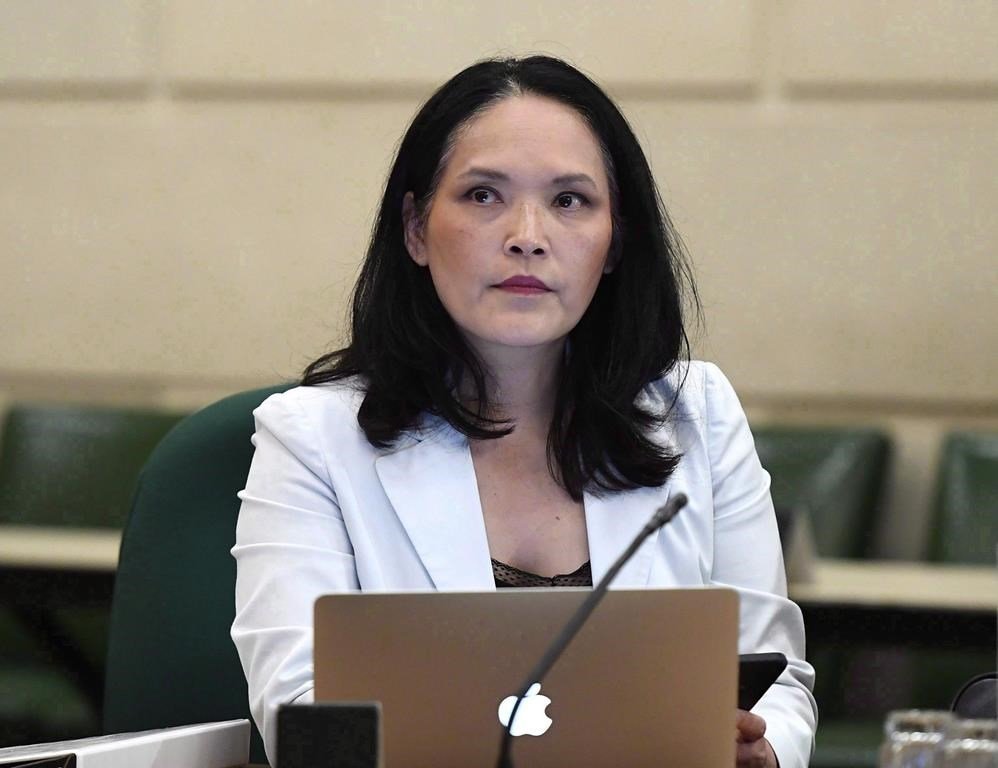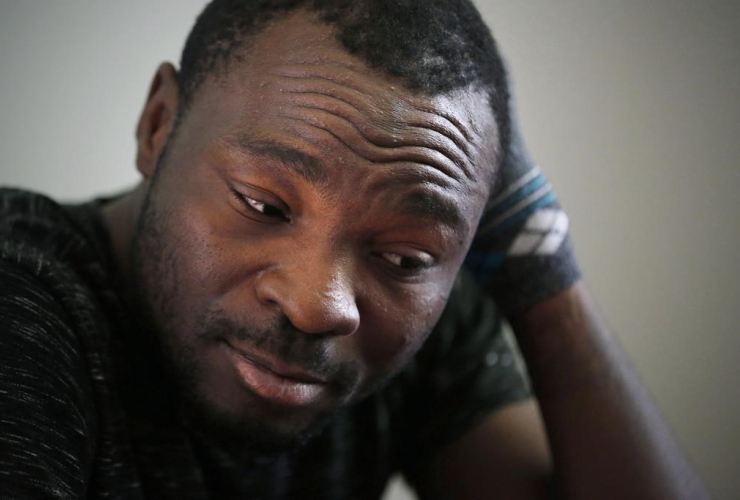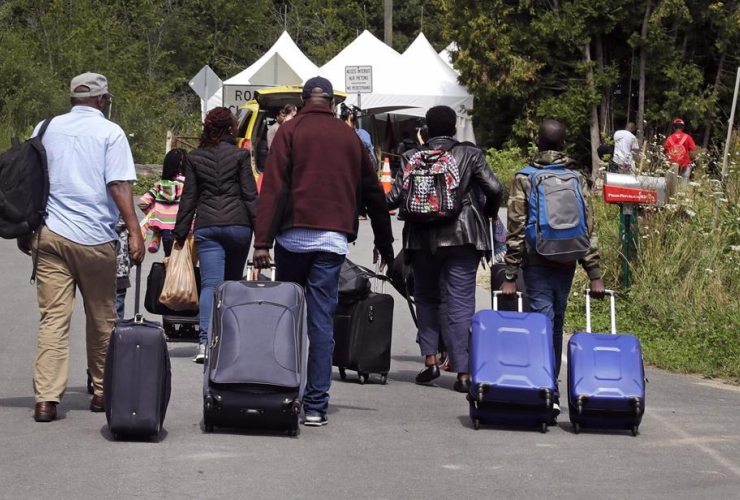NDP immigration critic Jenny Kwan says she is dismayed by newly published guidelines for asylum seekers who fall under a controversial new admissibility law — guidelines she believes show some refugees will not get a fair chance to plead their case for protection in Canada.
The guidelines, published on the Immigration Department website in June, say refugees subject to the new law cannot use their oral hearings to make legal representations or present arguments, but can only lay out facts of their case and answer questions.
Legal arguments and testimony from witnesses supporting their refugee claims can only be submitted in writing.
Kwan said she believes that amounts to nothing more than a "glorified interview" and is accusing Border Security Minister Bill Blair of misleading Canadians when he said publicly in the spring these asylum seekers would have access to a full and robust oral hearing.
"The guidelines are actually quite contrary to those promises," she said in an interview this week.
"While they say there will be mandatory hearings, those hearings are really extremely limited.... Basically it's a glorified interview based on very restricted items that can be brought up."
In April, the Liberals made changes to refugee admissibility to prevent asylum seekers from making refugee claims in Canada if they have made similar claims in certain other countries, including the United States — a move Blair said was aimed at preventing "asylum-shopping."
Lawyers and human rights groups condemned the move, saying it would strip human-rights protections from vulnerable asylum seekers, including their right to a full hearing.
In response, an amendment was added to ensure all refugees subject to this new law would be guaranteed an oral hearing as part of their 'pre-removal risk assessment' — a process undertaken for every refugee claimant in Canada before they are removed from the country to ensure they are not returned to a place where they would face danger.
The new guidelines, which outline the rules for those hearings, are the first in series, with additional guidelines to be posted in the coming week.
"It is not appropriate for the applicant or counsel representing the applicant to raise issues or submit evidence at the hearing that does not relate to those issues signalled in the notice. It is also not appropriate to use the hearing to make legal representations or present arguments," the guidelines state.
"It is not a forum for adjudication of the application ... the hearing is an informal process restricted to raising issues of fact with the applicant, affording the applicant an opportunity to answer questions raised by the officer with, if needed, the assistance of counsel."
Kwan has sent a letter to Blair and to Immigration Minister Ahmed Hussen expressing concern about the guidelines.
"Effectively what this means is that a person will not be able to present their case to seek protection. In a normal hearing, a person would have the opportunity to present their case, call witnesses, present evidence to establish their case of why they are seeking safety in Canada," she said.
"But under this very restrictive set of guidelines, a person would not be able to do that."
Blair's spokesperson, Marie-Emmanuelle Cadieux, defended the new rules.
"Contrary to Ms. Kwan's comments, asylum claimants will still have access to a robust oral hearing, subject to appeal, whereby they will receive Canada's protection if found to be at risk," Cadieux said in a statement.
"We reiterate that no person will be turned away if they are deemed to be at risk and nobody will be removed without an opportunity to be heard.
Kwan says she doesn't believe these procedures in keeping with a landmark 1985 Supreme Court ruling that found asylum-seekers have the right to full oral hearings of their refugee claims.
She is calling on Blair and Hussen to immediately withdraw the current guidelines and allow all asylum applications to be adjudicated by the Immigration and Refugee Board, the body responsible for all other asylum claimants not covered by the new law.
Since when has Canada
Since when has Canada subscribed to the notion that it is a crime, worthy of deportation to seek safety in Canada. Since when have we deemed it proper to reject people who are searching for the best possible chance to survive, even if that entails multiple applications to different nations.. Will we soon restrict university applicants to making a single application to a specific institution of higher learning and if that fails condemn them (and us) to the loss of their potential earning/taxpaying power?
This pandering to the anti-immigrant ignorance/fear of established "Canadians" is lethally self-defeating.





Comments